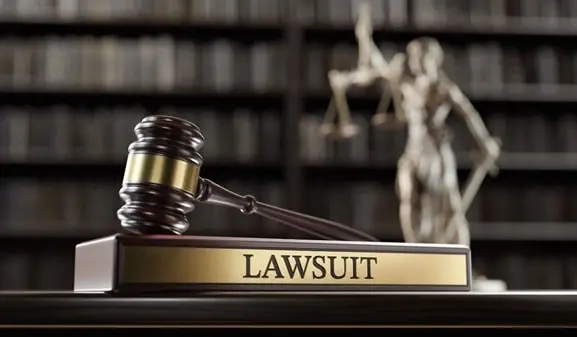Optima Tax Relief, a well-known tax relief company, is facing a class action lawsuit alleging a range of consumer protection violations. Filed in May 2023 in the U.S. District Court for the Central District of California, this lawsuit (Melito et al. v. Optima Tax Relief LLC) highlights critical concerns within the tax relief industry, including misleading marketing practices, excessive fees, and alleged lack of communication with clients. The case, which is still in its early stages, could impact both Optima and the wider tax relief sector, potentially leading to regulatory changes and consumer protection reforms.
Background of the Optima Tax Relief Lawsuit
Optima Tax Relief markets itself as a solution for clients facing IRS or state tax issues, promising debt relief through tax negotiations, installment plans, and settlements with tax authorities. However, the plaintiffs allege that Optima misrepresented its capabilities, charging clients high fees without delivering promised results. The lawsuit includes claims that Optima used deceptive sales practices, failed to provide adequate client communication, and misled clients regarding the outcomes they could expect from the company’s services. Key complaints include unfulfilled promises of debt reduction, unauthorized actions on behalf of clients, and a lack of clarity around fees.
Optima has denied these allegations, asserting that it operated in good faith and followed standard industry practices. The company claims that the plaintiffs’ dissatisfaction resulted from their own failure to adhere to the service agreements or from unreasonable expectations. Optima maintains that it informed clients of the potential outcomes and offered services in compliance with industry standards.
Key Allegations and Consumer Concerns
The plaintiffs’ complaint covers several significant accusations:
- Unfulfilled Promises: Optima allegedly promised substantial debt reductions that were not delivered, leaving clients with substantial tax liabilities.
- Misleading Information: The company is accused of downplaying the complexity of tax issues and providing inaccurate information about expected outcomes.
- Excessive and Hidden Fees: Clients claim that Optima’s fees far exceeded initial estimates, with reports of hidden charges and unexpected billing increases.
- Communication Failures: There are claims that Optima frequently failed to communicate with clients, leaving them unaware of case progress or changes in their financial obligations.
- Unauthorized Actions: Optima is alleged to have filed tax returns or taken other actions on behalf of clients without their explicit consent, which plaintiffs argue violates ethical and legal standards.
Legal Arguments and Claims for Relief
The plaintiffs in the Optima class action lawsuit are seeking several forms of relief:
- Restitution: They want reimbursement for the fees they paid, which they argue were collected under false pretenses.
- Injunction: Plaintiffs are asking the court to order Optima to cease allegedly deceptive practices.
- Compensatory Damages: The plaintiffs are also pursuing damages for emotional distress and other harms they claim to have suffered as a result of Optima’s actions.
Broader Implications for the Tax Relief Industry
This case highlights long-standing consumer concerns in the tax relief industry, where aggressive sales tactics, lack of transparency, and misleading advertising are common complaints. The outcome of this lawsuit could set an important precedent, potentially leading to stricter oversight of tax relief companies. In recent years, similar lawsuits have prompted other companies to adjust their practices, adding more transparency around fees and providing clearer information about potential outcomes.
If the plaintiffs succeed, other tax relief firms may be prompted to adopt more stringent internal controls and customer transparency practices. Additionally, regulatory agencies such as the Federal Trade Commission (FTC) could consider increasing scrutiny on tax relief companies to prevent deceptive practices.
Current Status and Next Steps
The Optima Tax Relief lawsuit is still in progress, with ongoing discovery and pre-trial motions. Optima is reportedly seeking to dismiss the case or compel arbitration, arguing that clients agreed to arbitration clauses within their service contracts. However, if the case proceeds to trial and the plaintiffs prevail, Optima may face significant financial penalties and could be required to change its business practices to comply with any new legal standards set by the court’s ruling.
Lessons for Consumers and Tax Relief Users
For consumers considering tax relief services, this case underscores the importance of conducting thorough research. Tax relief can be beneficial, but clients should be aware of the potential risks and limitations of these services. Reading reviews, understanding service agreements, and consulting with a legal advisor before committing to high fees can help individuals make informed decisions and avoid unexpected financial burdens.
Conclusion
The class action lawsuit against Optima Tax Relief brings essential consumer protection issues to the forefront. As the case unfolds, it could lead to impactful changes in how tax relief companies operate and improve transparency in their marketing and billing practices. For the thousands of individuals facing tax debt, this case serves as a reminder to exercise caution, seek clear information, and carefully review any agreements before signing up for tax relief services.


